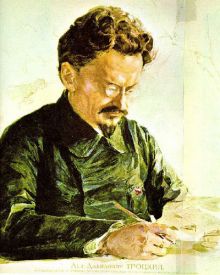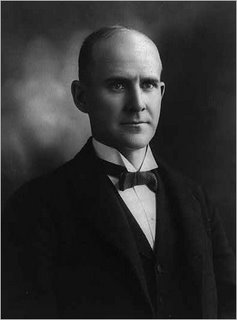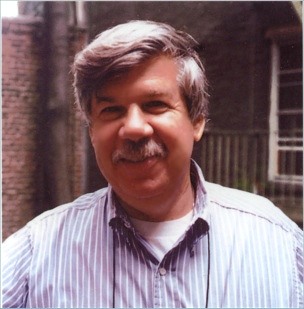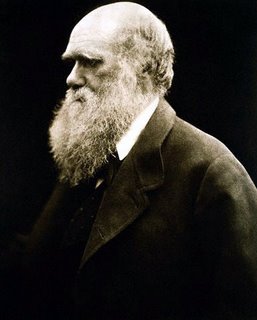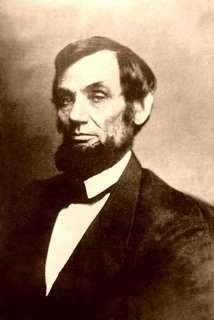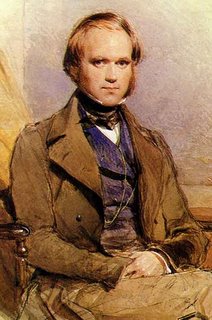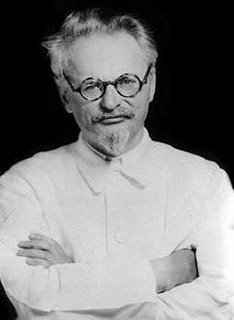 SECTARIANISM, CENTRISM AND THE FOURTH INTERNATIONALBy Leon Trotsky[We are posting here an important article by Trotsky, from October 22, 1935. There is something especially timely about this article now. We are living through an unprecedented global economic crisis, while at the same time the traditional labor movement is disintegrating, with little credibility left. Under these conditions, it is inevitable that makeshift formations will emerge in the working class to fill the political vacuum. In many ways, how revolutionary Marxists respond to these developments will determine whether we can find a road to the masses or not. Trotsky’s article is a timely reminder of two grave dangers facing Marxists under such circumstances – the danger of sectarianism and the danger of centrism. As Trotsky notes in his article, these two apparent opposites are in fact closely related: they are both diversions from the essential struggle of Marxists to intervene in the living movement of the working class, and through that intervention, build bridges to socialist consciousness. A further point needs to be made, specifically with regard to centrism: “We draw a distinction,” Trotsky wrote elsewhere, “between the centrism of the workers, which is only a transition stage for them, and the professional centrism of many leaders among whom there are also incurables” (“Two Articles on Centrism”: http://www.marxists.org/archive/trotsky/1934/02/centrism.htm). This is a distinction that sectarians routinely ignore.]
SECTARIANISM, CENTRISM AND THE FOURTH INTERNATIONALBy Leon Trotsky[We are posting here an important article by Trotsky, from October 22, 1935. There is something especially timely about this article now. We are living through an unprecedented global economic crisis, while at the same time the traditional labor movement is disintegrating, with little credibility left. Under these conditions, it is inevitable that makeshift formations will emerge in the working class to fill the political vacuum. In many ways, how revolutionary Marxists respond to these developments will determine whether we can find a road to the masses or not. Trotsky’s article is a timely reminder of two grave dangers facing Marxists under such circumstances – the danger of sectarianism and the danger of centrism. As Trotsky notes in his article, these two apparent opposites are in fact closely related: they are both diversions from the essential struggle of Marxists to intervene in the living movement of the working class, and through that intervention, build bridges to socialist consciousness. A further point needs to be made, specifically with regard to centrism: “We draw a distinction,” Trotsky wrote elsewhere, “between the centrism of the workers, which is only a transition stage for them, and the professional centrism of many leaders among whom there are also incurables” (“Two Articles on Centrism”: http://www.marxists.org/archive/trotsky/1934/02/centrism.htm). This is a distinction that sectarians routinely ignore.]
IT would be absurd to deny the presence of sectarian tendencies in our midst. They have been laid bare by an entire series of discussions and splits. Indeed, how could an element of sectarianism have failed to manifest itself in an ideological movement which stands irreconcilably opposed to all the dominant organizations in the working class, and which is subjected to monstrous, absolutely unprecedented persecution all over the world?
Reformists and centrists readily seize upon every occasion to point a finger at our “sectarianism’’. Most of the time, they have in mind not our weak but our strong side: our serious attitude towards theory; our effort to plumb every political situation to the bottom, and to advance clear-cut slogans; our hostility to “easy” and “comfortable” decisions which deliver from cares today, but prepare a catastrophe on the morrow. Coming from opportunists, the accusation of sectarianism is most often a compliment.
Curiously enough, however, we are often accused of sectarianism not only by reformists and centrists but by opponents from the “left” — the notorious sectarians, who might well be placed as exhibits in any museum. The basis for their dissatisfaction with us lies in our irreconcilability to themselves, in our striving to purge ourselves of the infantile sectarian diseases, and to rise to a higher level.
To a superficial mind it may seem that such words as sectarian, centrist, and so on, are merely polemical expressions exchanged by opponents for lack of other and more appropriate epithets. Yet the concept of sectarianism as well as the concept of centrism has a precise meaning in a Marxian dictionary. Marxism has built a scientific program upon the laws that govern the movement of capitalist society, which were discovered by it. This is a colossal conquest!
However, it is not enough to create a correct program. It is necessary that the working class accept it. But the sectarian, in the nature of things, comes to a full stop upon the first half of the task. Active intervention in the actual struggle of the working masses is supplanted, for him, by an abstract propaganda for a Marxist program.
Every working-class party, every faction, passes during its initial stages through a period of pure propaganda — that is, the training of its cadres. The period of existence as a Marxist circle invariably grafts habits of an abstract approach to the problems of the workers’ movement. He who is unable to step in time over the confines of this circumscribed existence becomes transformed into a conservative sectarian. The sectarian looks upon the life of society as a great school, with himself as a teacher there. In his opinion, the working class should put aside its less important matters, and assemble in solid rank around his rostrum. Then the task would be solved.
Though he may swear by Marxism in every sentence, the sectarian is the direct negation of dialectical materialism, which takes experience as its point of departure and always returns to it. A sectarian does not understand the dialectical interaction between a finished program and a living (that is to say, imperfect and unfinished) mass struggle. The sectarian’s method of thinking is that of a rationalist, a formalist and an enlightener. During a certain stage of development rationalism is progressive, being directed critically against blind beliefs and superstitions (the eighteenth century!) The progressive stage of rationalism is repeated in every great emancipatory movement. But rationalism (abstract propagandism) becomes a reactionary factor the moment it is directed against the dialectic. Sectarianism is hostile to dialectics (not in words but in action) in the sense that it turns its back upon the actual development of the working class.
The sectarian lives in a sphere of ready-made formulas. As a rule, life passes him by without noticing him; but now and then he receives in passing such a fillip as makes him turn 180 degrees around his axis, and often makes him continue on his straight path, only ... in the opposite direction. Discord with reality engenders in the sectarian the need to constantly render his formulas more precise. This goes under the name of “discussion”. To a Marxist, discussion is an important but functional instrument in the class struggle. To the sectarian discussion is a goal in itself. However, the more he discusses, the more actual tasks escape him. He is like a man who satisfies his thirst with salt water: the more he drinks, the thirstier he becomes. Hence the constant irritability of the sectarian. Who slipped him the salt? Surely, the “capitulators” of the International Secretariat. The sectarian sees an enemy in everyone who attempts to explain to him that an active participation in the workers’ movement demands a constant study of objective conditions, and not haughty bulldozing from the sectarian rostrum. For analysis of reality the sectarian substitutes intrigue, gossip and hysteria.
Centrism is in a certain sense the polar opposite of sectarianism; it abhors precise formulas, seeks routes to reality outside of theory. But despite Stalin’s famous formula, “antipodes” often turn out to be “twins”.[1] A formula detached from life is hollow. Living reality cannot be grasped without theory Thus, both of them, the sectarian and the centrist, depart in the end with empty hands and join together ... in their feelings of animosity towards the genuine Marxist.
How many times have we met a smug centrist who reckons himself a “realist” merely because he sets out to swim without any ideological baggage whatever, and is tossed by every vagrant current. He is unable to understand that principles are not dead ballast but a lifeline for a revolutionary swimmer. The sectarian, on the other hand, generally does not want to go swimming at all, in order not to wet his principles. He sits on the shore and reads lectures on morality to the flood of the class struggle. But sometimes a desperate sectarian leaps headlong into the water, seizes hold of the centrist and helps him drown. So it was; so it will be.
In our epoch of disintegration and dispersal there are to be found a good many circles in various countries who have acquired a Marxist program, most often by borrowing it from the Bolsheviks, and who have then turned their ideological baggage into a greater or lesser degree of ossification.
Let us take, for example, the best specimen of this type, namely the Belgian group led by Comrade Vereecken.[2] On August 10 Spartacus, the organ of this group, announced its adherence to the Fourth International. This announcement was to be welcomed. But at the same time it is necessary to state beforehand that the Fourth International would be doomed if it made concessions to sectarian tendencies.
Vereecken was in his own time an irreconcilable opponent of the entry of the Communist League of France into the Socialist Party. There is no crime in this. The question was a new one, differences were entirely permissible. In a certain sense, equally permissible, or at any rate unavoidable, were exaggerations in the ideological struggle. Thus, Vereecken predicted the inevitable ruin of the international organization of the Bolshevik-Leninists as a result of its “dissolution” into the Second International. We would advise Vereecken to reprint today in Spartacus his prophetic documents of yesteryear. But this is not the chief evil. Worse yet is the fact that in its present declaration Spartacus confines itself to pointing out evasively that the French Section remained true to its principles “in a considerable, we may even say a large, measure”. If Vereecken behaved as a Marxist politician should, he would have stated clearly and definitely wherein our French section departed from its principles, and he would have given a direct and an open answer to the question of who proved to be right: the advocates or the opponents of entry?
Vereecken is even more incorrect in his attitude towards our Belgian section that entered the reformist Labor Party [POB]. Instead of studying the experiences relating to and resulting from the work carried on under new conditions, and criticizing the actual steps taken, if they merit criticism, Vereecken keeps on complaining about the conditions of the discussion in which he suffered defeat. The discussion, you see, was incomplete, inadequate and disloyal: Vereecken failed to satisfy his thirst with salt water. There is no “real” democratic centralism in the International Communist League! In relation to the opponents of entry the League evinced ... “sectarianism”.
It is clear that Comrade Vereecken has a liberal and not a Marxian conception of sectarianism: in this he obviously draws close to the centrists. It is not true that the discussion was inadequate: it was carried on for several months, orally and in the press, and on an international scale besides. After Vereecken had failed to convince others that marking time in one place is the best revolutionary policy, he refused to abide by the decisions of the national and international organizations. The representatives of the majority told Vereecken on more than one occasion that if experience proved that the step taken was incorrect, we would rectify the mistake jointly. Is it really possible that after the 12-year struggle of the Bolshevik-Leninists, you lack sufficient confidence in your own organizations to preserve discipline of action even in case of tactical disagreements? Vereecken paid no heed to comradely and conciliating arguments. After the entry of the majority of the Belgian section into the Labor Party, the Vereecken group naturally found itself outside our ranks. The blame for this falls entirely upon its own shoulders.
If we return to the gist of the question, then Comrade Vereecken’s sectarianism stands out in all its dogmatic uncouthness. What’s this! cried Vereecken in indignation: Lenin spoke of breaking with reformists, but the Belgian Bolshevik-Leninists enter a reformist party! But Lenin had in mind a break with the reformists as the inevitable consequence of a struggle against them, and not as an act of salvation regardless of time and place. He required a split with the social-patriots not in order to save his own soul but in order to tear the masses away from social patriotism. In Belgium the trade unionists are fused with the Belgian Labor Party; the Belgian party is essentially the organized working class.
To be sure, the entry of revolutionists into the Belgian Labor Party not only opened up possibilities but also imposed restrictions. In propagandizing Marxian ideas it is necessary to take into account not only the legalities of the bourgeois state but also the legalities of a reformist party (both these legalities, it may be added, coincide in a large measure). Generally speaking, adaptation to an alien “legality” carries with it an indubitable danger. But this did not prevent the Bolsheviks from utilizing even czarist legality: for many years the Bolsheviks were compelled to call themselves, at trade union meetings and in the legal press, not Social Democrats but “consistent Democrats”. True, this did not pass scot-free; a considerable number of elements adhered to Bolshevism who were more or less consistent democrats, but not at all international socialists; however, by supplementing legal with illegal activity, Bolshevism overcame the difficulties.
Of course, the “legality” of Vandervelde, de Man, Spaak and other flunkeys of the Belgian plutocracy imposes very onerous restrictions on the Marxists, and thus engenders dangers. But Marxists who are not as yet sufficiently strong to create their own party, have their own methods for the struggle against the dangers of reformist captivity; a clear-cut program, constant factional ties, international criticism, etc. The activity of a revolutionary wing in a reformist party can be judged correctly only by evaluating the dynamics of development. Vereecken does not do this, either in regard to the faction ASR faction or the Verite group. Had he done so, he would have been compelled to admit that the ASR has made serious advances in the recent period. What the final balance will be is impossible to forecast as yet. But the entry into the Belgian Labor Party is already justified by experience.
Extending and generalizing his mistake, Vereecken asserts that the existence of isolated small groups, which split away at different stages from our international organisation, is proof of our sectarian methods. Thus, the actual relationships are stood on their head. As a matter of fact, into the ranks of the Bolshevik-Leninists during the initial stages came a considerable number of anarchistic and individualistic elements generally incapable of organizational discipline, and occasionally an incompetent, who could not make his career in the Comintern. These elements viewed the struggle against “bureaucratism” in approximately the following manner: no decisions must ever be arrived at; instead, “discussion” is to be installed as a permanent occupation. We can say with complete justification that the Bolshevik-Leninists showed a good deal of patience – perhaps even a good deal too much – towards such types of individuals and grouplets. Only since an international core has been consolidated, and has begun to assist the national sections in purging their ranks of internal sabotage, has actual and systematic growth of our organization begun.
Let us take a few examples of groups that split from our international organisation at various stages of its development.
The French periodical
Que Faire? [What Is To Be Done?] is an instructive specimen of a combination of sectarianism with eclecticism. On the most important questions this periodical expounds the views of the Bolshevik-Leninists, changing a few commas, and directing severe critical remarks at us. At the same time, this periodical permits a defence of social-patriotic garbage, under the guise of discussion, and under cover of “defending the USSR”, to go on with impunity. The internationalists of
Que Faire? are themselves unable to explain how and why they happen to cohabit peacefully with social patriots after breaking with the Bolsheviks. It is clear, however, that with such eclecticism Que Faire? is least capable of replying to the question what to do (
que faire).
The “Internationalists” and the social patriots are agreed on only one thing: never the Fourth International! Why? One must not “break away” from the Communist workers. We have heard the self-same argument from the SAP: we must not break away from the Social Democratic workers. In this instance, too, antipodes turn out to be twins. The peculiar thing, however, is that
Que Faire? is not connected, and, by its very nature, cannot be connected with any workers.
There is even less to be said about such groups as
Internationale or
Proletaire. They also abstract their views from the latest issues of
La Verite, with an admixture of critical improvisations. They have no perspectives at all of revolutionary growth; but they manage to get along without perspectives. Instead of trying to learn within the framework of a more serious organization (to learn is difficult), these haters of discipline, very pretentious “leaders,” desire to teach the working class (this appears to them to be easier). In moments of sober reflection they must themselves realize that their very existence as “independent” organizations is a sheer misunderstanding.
In the United States we might mention the Field and Weisbord groups.[3] Field – in his entire political make-up – is a bourgeois radical who has acquired the economic views of Marxism. To become a revolutionist Field would have had to work for a number of years as a disciplined soldier in a revolutionary proletarian organization; but he began by deciding to create a workers’ movement “of his own”. Assuming a position to our “left” (where else?), Field shortly entered into fraternal relations with the SAP. As we see, the incident that befell Bauer was not at all accidental. The urge to stand to the left of Marxism leads fatally to the centrist swamp.
Weisbord is indubitably closer to a revolutionary type than Field. But at the same time he represents the purest example of a sectarian. He is utterly incapable of preserving proportions, either in ideas or in actions. Every principle he turns into a sectarian caricature. That is why even correct ideas in his hands become instruments for disorganizing his own ranks.
There is no need to dwell upon similar groups in other countries. They split from us not because we are intolerant or intolerable but because they themselves did not and could not go forward. Since the time of the split they have succeeded only in exposing their incapacity. Their attempts to unite with each other, on a national or an international scale, produced no results in any single case: peculiar to sectarianism is only the power of mutual repulsion and not the power of attraction.
Some crank has computed the number of “splits” we have had and arrived at the sum of about a score. He saw in this devastating evidence of our bad regime. The peculiar thing is that in the SAP itself, which had triumphantly published these computations, there occurred, during the few years of its existence, more rifts and splits than in all our sections taken together. Taken by itself, however, this fact is meaningless. It is necessary to take not the bald statistics of splits but the dialectics of development. After all its splits, the SAP remained an extremely heterogeneous organization which will be unable to withstand the first onset of great events. This applies even to a larger measure to the “London Bureau of Revolutionary Socialist Unity”, which is being torn asunder by irreconcilable contradictions; its “tomorrow” will consist not of “unity” but only of splits. In the meantime, the organization of the Bolshevik-Leninists, after purging itself of sectarian and centrist tendencies, not only grew numerically, not only strengthened its international ties, but also found the road to fusion with organisations akin to it in spirit (Holland, United States). The attempts to blow up the Dutch Party (from the right, through Molenar!) and the American Party (from the left, through Bauer!) have only led to the internal consolidation of both these parties. We can predict with assurance that parallel to the disintegration of the London Bureau will proceed an ever more rapid growth of the organizations of the Fourth International.
How the new International will take form, through what stages it will pass, what final shape it will assume – this no one can foretell today. And, indeed, there is no need to do so: historical events will show us. But it is necessary to begin by proclaiming a program that meets the tasks of our epoch. On the basis of this program it is necessary to mobilize co-thinkers, the pioneers of the new International. No other road is possible.
The
Communist Manifesto of Marx and Engels, directly aimed against all types of utopian-sectarian socialism, forcefully points out that Communists do not oppose themselves to the actual workers’ movements but participate in them as a vanguard. At the same time the
Manifesto was the program of a new party, national and international. The sectarian is content with a program as a recipe for salvation. The centrist guides himself by the famous (essentially meaningless) formula of Eduard Bernstein: “the movement is everything, the final goal – nothing”. The Marxist draws his scientific program from the movement taken as a whole, in order to apply this program to every concrete stage of the movement.
On the one side, the initial steps of the new International are made more difficult by the old organizations and splinters from them: on the other side, they are facilitated by the colossal experience from the past. The process of crystallization, which is very difficult and full of torments during the first stages, will assume in the future an impetuous and rapid character. Recent international events are of incommensurate significance for the formation of the revolutionary vanguard. In his own fashion, Mussolini — and this should be recognised — has “aided” the cause of the Fourth International. Great conflicts sweep away all that is half-way and artificial and, on the other hand, give strength to all that is viable. War leaves room only for two tendencies in the ranks of the working class movement: social patriotism, which does not stop at any betrayal, and revolutionary internationalism, which is bold and capable of going to the end. It is precisely for this reason that centrists, fearful of impending events, are waging a rabid struggle against the Fourth International. They are correct, in their own fashion: in the wake of great convulsions, the only organizations that will be able to survive and develop are those that have not only cleansed their ranks of sectarianism but have also systematically trained them in the spirit of despising all ideological vacillation and cowardice.
[1] “Stalin’s famous formula” during the “third period” had that Social Democracy and fascism were not antipodes (i.e. opposites) but twins.
[2] Georges Vereecken was a leader of a group that split away from the Trotskyist movement’s Belgian section early in 1935, when that section voted to enter the Belgian Labor Party. After rejoining in 1936, Vereecken split again in 1938 in protest against the founding of the Fourth International.
[3] B. J. Field was expelled from the American Trotskyist movement after violating party discipline in 1934. He organized the League for a Revolutionary Workers Party, which soon disappeared. Albert Weisbord, who was expelled from the American Communist Party in 1929, organized a small group, the Communist League of Struggle, which proclaimed its adherence to the Trotskyist movement in the early thirties, although its politics vacillated between those of the Right and Left Oppositions. He later broke with Marxism and became an AFL organizer.







